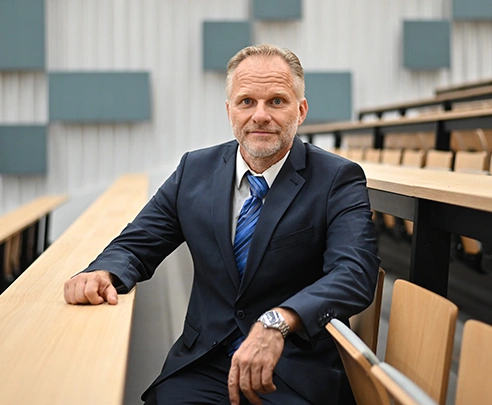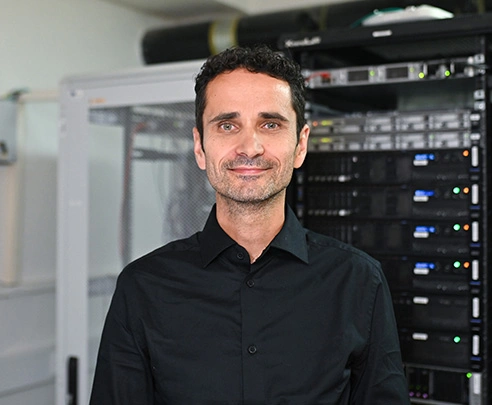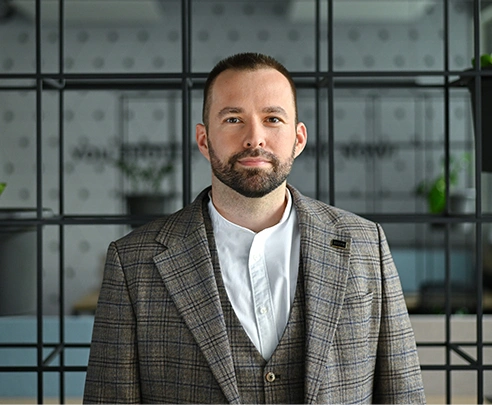Helena Bujdáková’s scientific world is big, but also tiny enough to be invisible. „It’s a microscopic world of bacteria, yeast and microscopic filamentous fungi, that we can’t see with the naked eye,“ she explains with a hint of mystery. This world is perceptible in a laboratory, under a microscope, and today’s research methods even enable us to look into cells themselves. Prof. RNDr. Helena Bujdáková, CSc., leads the Department of Microbiology and Virology of the Faculty of Natural Sciences at Comenius University Bratislava. Her scientific work focuses on virulence factors, resistance, and pathogenic bacteria and yeast biofilms.
The recent Covid-19 pandemic showed how important her field of research is. What was initially a viral disease was often complicated by infections caused by pathogenic bacteria or fungi. Microorganisms can create communities, so-called biofilms, that survive on various surfaces and can often be resistant to standard antibiotics. „This is our scope of work. We research why this resistance occurs, how we can prevent it, and how to break it. That’s why biofilms are a big challenge for today’s medicine,“ Helena Bujdáková explains. She has worked extensively on the bacterium Staphylococcus aureus, known as golden staph, and the yeasts of the genus Candida. If these microorganisms get into the blood, they cause life-threatening infections. Biofilms that form on medical devices can be a source of them. These microorganisms often complicate the treatment of other serious diseases in hospitals. In recent years, Professor Bujdáková has also been working on the development of unique nanomaterials with antimicrobial effects, which could bring a new generation of materials with medical application.
At first, she wanted to study languages and be a teacher like her father. Eventually, she started studying biology. She decided to take up microbiology on the basis of the practical exercises that fascinated her, and today she attracts enthusiastic students to these exercises as well. Led by her, they discover the world of microorganisms, not only with the help of microscopes, but also using modern molecular methods. Professor Bujdáková explains that 95 percent of new original experiments in biology do not succeed at the first attempt. „It's a lot of toil with modelling and adjusting the conditions of the experiments. If we are to trust a result, it needs to be verified by several methods. I tell my students that they need to stay motivated and patient. Even a success rate of five percent is exciting and it’s usually worth it. Our knowledge will move a little further.“
Professor Bujdáková is the Czechoslovak Society for Microbiology’s delegate in the Federation of European Microbiological Societies. She has brought to Slovakia many inspirations and know-how from her various study and scientific stays abroad. She has been awarded several national scientific projects, collaborated on international projects, and led a project from the European Horizon 2020 grant scheme. She has so far advised 12 postgraduate students and she is proud that they have all become successful in their professional lives. “In my teaching I want to help raise people that are not only successful in their professional and scientific lives but who are also valuable human beings.„
Professor Bujdáková sets an example for her students. She is involved in direct assistance to women scientists from Ukraine. In the future, she would like to be involved in the renovation of scientific laboratories in Ukrainian universities. She believes that background, including family background, is essential for every excellent scientist and educator.
Microbiology stays with her outside of her work. „I have little grandchildren, and when I play with them, I’m always on high alert,“ she laughs, because she sees microorganisms where others do not notice them. In the same breath she also lists the many beneficial microorganisms and the need to build up a healthy immunity. When not at work or with her grandchildren, she finds quiet and perspective on trips to the mountains. They reinforce her belief that, „A discerning scientist with an open mind is aware of the gaps and shortcomings in their knowledge. They tend to be modest because they know how much they don’t know yet.“ But microbiology has given her patience, responsibility, and perseverance. All of these are essential prerequisites not only for quality research but also for educating the younger generation.


